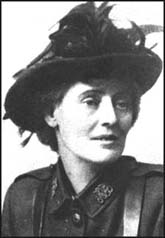Off topic: Has there ever been a good phrase book? Thread poster: Elizabeth Sumner
|
|---|
Hi, I'm just getting round to reading the sequel to Three Men in a Boat by Jerome K Jerome (one of my favourites) and I came across this passage that anyone who's tried to 'get by' with a Berlitz/Rough Guide/Lonely Planet should recognise.
"...He handed me a small book bound in red cloth. It was a guide to English conversation for the use of German travellers. It commenced “On a Steam-boat,” and terminated “At the Doctor’s”; its longest chapter being devoted to convers... See more Hi, I'm just getting round to reading the sequel to Three Men in a Boat by Jerome K Jerome (one of my favourites) and I came across this passage that anyone who's tried to 'get by' with a Berlitz/Rough Guide/Lonely Planet should recognise.
"...He handed me a small book bound in red cloth. It was a guide to English conversation for the use of German travellers. It commenced “On a Steam-boat,” and terminated “At the Doctor’s”; its longest chapter being devoted to conversation in a railway carriage, among, apparently, a compartment load of quarrelsome and ill-mannered lunatics: “Can you not get further away from me, sir?”—“It is impossible, madam; my neighbour, here, is very stout”—“Shall we not endeavour to arrange our legs?”—“Please have the goodness to keep your elbows down”—“Pray do not inconvenience yourself, madam, if my shoulder is of any accommodation to you,” whether intended to be said sarcastically or not, there was nothing to indicate —“I really must request you to move a little, madam, I can hardly breathe,” the author’s idea being, presumably, that by this time the whole party was mixed up together on the floor. The chapter concluded with the phrase, “Here we are at our destination, God be thanked! (Gott sei dank!)” a pious exclamation, which under the circumstances must have taken the form of a chorus…
…“It is not a brilliant publication,” I remarked, handing the book back to George; “it is not a book that personally I would recommend to any German about to visit England; I think it would get him disliked. But I have read books published in London for the use of English travellers abroad every whit as foolish. Some educated idiot, misunderstanding seven languages, would appear to go about writing these books for the misinformation and false guidance of modern Europe.”
From my experience, it seems nothing much has changed since 1900!
Elizabeth Sumner ▲ Collapse
| | | | NancyLynn
Canada
Local time: 22:42
Member (2002)
French to English
+ ...
Moderator of this forum | Greek phrasebook - not intended for tourists :-D | Oct 27, 2004 |
I once read a Greek phrase book which featured in its first page, among other phrases such as "Where is the toilet" and "Where is the train station", the following: "Excuse me, I"ve been shot".
Funny, I read that when I was 21, and for some reason, though I've visited many European countries since, I've hesitated to go to Greece 
Let's face it, ... See more
| | | | Jack Doughty 
United Kingdom
Local time: 03:42
Russian to English
+ ...
In memoriam | "Lo, the postilion has been struck by lightning!" | Oct 27, 2004 |
I always thought this phrase was from a 19th-century English phrase-book published in Portugal, but the closest I can find to it on Google is this, from the website of the BBC radio programme "Quote, Unquote":
Q729 An actual source for the famous phrasebook line, ‘My postillion has been struck by lightning’. In Karl Baedeker’s The Traveller’s Manual of Conversation in Four Languages (1836 ed.) is: ‘Postilion, stop; we wish to get down; a spoke of one of the wheels is brok... See more I always thought this phrase was from a 19th-century English phrase-book published in Portugal, but the closest I can find to it on Google is this, from the website of the BBC radio programme "Quote, Unquote":
Q729 An actual source for the famous phrasebook line, ‘My postillion has been struck by lightning’. In Karl Baedeker’s The Traveller’s Manual of Conversation in Four Languages (1836 ed.) is: ‘Postilion, stop; we wish to get down; a spoke of one of the wheels is broken.’ In an 1886 edition I have found: ‘Are the postilions insolent?; the lightning has struck; the coachman is drunk.’ From these examples it is quite clear that the preposterous phrase could quite likely have appeared in Baedeker or similar, but where? In 1935, the phrase was said to come from a Dutch phrasebook.
http://www1c.btwebworld.com/quote-unquote/p0000046.htm
The whole page is worth a look.
The Jerome K. Jerome book is called "Three Men on the Bummel".
[Edited at 2004-10-27 17:01] ▲ Collapse
| | | | | Oh I can't resist | Oct 28, 2004 |
Those are great, thanks.
When I first came to Mexico someone lent me a Spanish phrase book. It was of course divided into chapters, the last chapter being courtship and the last phrase of the courtship chapter a proposal of marriage.
I always wondered if you could then buy a phrase-book for married life. The mind boggles.
| | |
|
|
|
| Just an explosion | Oct 28, 2004 |
Some years back I read in The Readers' Digest about an author's reaction to a phrase book. One typical exchange went like this.
She: (nervously): "What is it?"
He: "Oh, nothing. Just an explosion".
Regards,
N.Raghavan
| | | |
By the way, every self-respecting Italian phrasebook in Germany (and probably somewhere else, too) features gestures, including some that I've never seen, as if you couldn't make yourself understood in Italy without your hands.
| | | | NancyLynn
Canada
Local time: 22:42
Member (2002)
French to English
+ ...
Moderator of this forum | French Canadians | Oct 29, 2004 |
Two French Canadians are ice-fishing in Baie-Comeau. The fish aren`t biting, but the men have lots to talk about (NHL on strike, you know;-))finally one says to the other: 'Can we switch to English, now? My hands are getting cold.'
Nancy
| | | | Dan Marasescu 
Romania
Local time: 04:42
Member (2003)
English to Romanian
+ ...
| The Bald Soprano | Oct 29, 2004 |
You may know that this kind of conversation books became a source of inspiration for literature. I recommend "La Cantatrice Chauve" (The Bald Soprano) by Eugene Ionesco, who was very much inspired by Assimil language courses.
"Good grief, it's nine o'clock. We've eaten our soup, fish, buttered potato jackets and British salad. The children have drunk British water. We stuffed ourselves this evening. All because we live in the outskirts of London and because our name is Smith."
... See more You may know that this kind of conversation books became a source of inspiration for literature. I recommend "La Cantatrice Chauve" (The Bald Soprano) by Eugene Ionesco, who was very much inspired by Assimil language courses.
"Good grief, it's nine o'clock. We've eaten our soup, fish, buttered potato jackets and British salad. The children have drunk British water. We stuffed ourselves this evening. All because we live in the outskirts of London and because our name is Smith."
---Mrs. Smith in The Bald Soprano ▲ Collapse
| | |
|
|
|
| Tom and Jerry - They liked a wee dram | Oct 29, 2004 |
I took a look at the website Jack mentioned - it certainly is worth a look. Anyway, I was carrying on with the book and came across the following odd phrase (it's used by a churchwarden to describe his youthful high jinks).
"I tried driving [stealing] a hansom cab once. That has always been regarded as the acme of modern Tom and Jerryism."
I'd never heard this used before so I had to have a look for the derivation on the internet. Apparently this was a Victorian te... See more I took a look at the website Jack mentioned - it certainly is worth a look. Anyway, I was carrying on with the book and came across the following odd phrase (it's used by a churchwarden to describe his youthful high jinks).
"I tried driving [stealing] a hansom cab once. That has always been regarded as the acme of modern Tom and Jerryism."
I'd never heard this used before so I had to have a look for the derivation on the internet. Apparently this was a Victorian term for wild, drunken behaviour. Even stranger, it's all down to Eggnog! The following is taken from 'Eggnog - A History' (there really is everything on the internet).
"In the 1820's Pierce Egan, a period author, wrote a book called "Life of London: or Days and Nights of Jerry Hawthorne and His Elegant Friend Corinthina Tom". To publicize his work Mr. Egan made up a variation of eggnog he called "Tom and Jerry". It added 1/2 oz of brandy to the basic recipe (fortifying it considerably and adding further to its popularity)."
So one man's fortified eggnog inadvertently led to the greatest cartoon double act of all time (and probably some serious stomach upsets).
It's a strange world.
Elizabeth
Jack Doughty wrote:
I always thought this phrase was from a 19th-century English phrase-book published in Portugal, but the closest I can find to it on Google is this, from the website of the BBC radio programme "Quote, Unquote":
The whole page is worth a look.
The Jerome K. Jerome book is called "Three Men on the Bummel".
[Edited at 2004-10-27 17:01] ▲ Collapse
| | | | To report site rules violations or get help, contact a site moderator: You can also contact site staff by submitting a support request » Has there ever been a good phrase book? | Wordfast Pro | Translation Memory Software for Any Platform
Exclusive discount for ProZ.com users!
Save over 13% when purchasing Wordfast Pro through ProZ.com. Wordfast is the world's #1 provider of platform-independent Translation Memory software. Consistently ranked the most user-friendly and highest value
Buy now! » |
| | Anycount & Translation Office 3000 | Translation Office 3000
Translation Office 3000 is an advanced accounting tool for freelance translators and small agencies. TO3000 easily and seamlessly integrates with the business life of professional freelance translators.
More info » |
|
| | | | X Sign in to your ProZ.com account... | | | | | |









